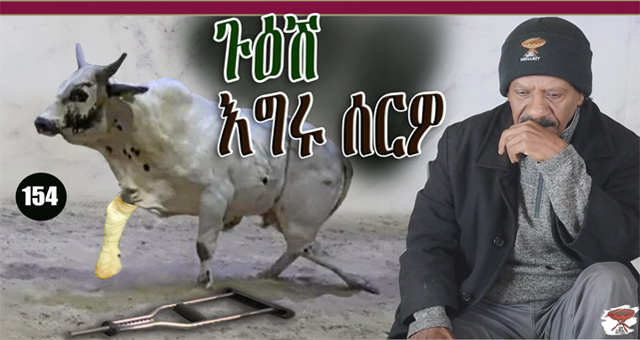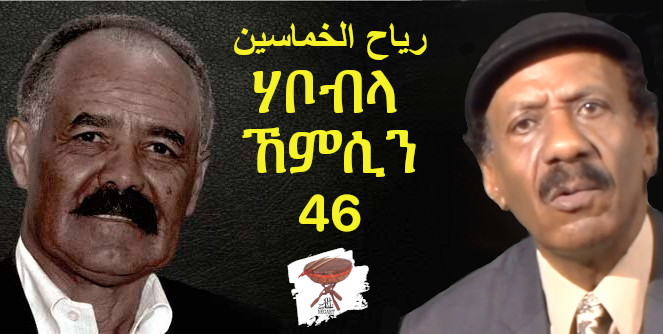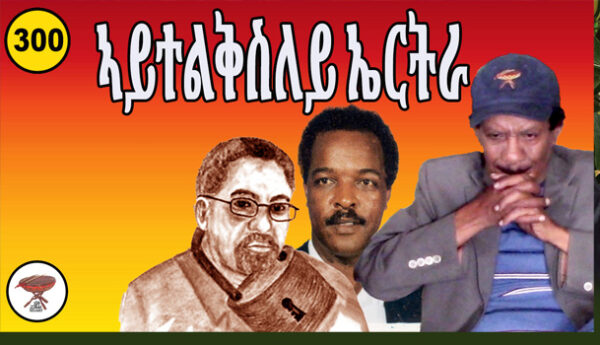Negarit 319: Eritrean Harikari, like The Japanese
In our culture, hurt or shamed persons never blame themselves but seek revenge on those who caused the shame or indignity, and the Japanese have a right tradition on that. But there are stories of determination, valor, and dignity. Let’s compare the Japanese Harikari and the Eritrean valor. Japanese are different.
The Samurai were governed by 7 rules contained in the Bushido: righteousness, loyalty, honor, respect, honesty, courage, and consistency. If a samurai broke the code of the rules of Bushido, they lost honor and were expected to commit Seppuku, popularly known as Harikari. Otherwise, they faced exile or undignified execution.
Committing seppuku (harikiri) to regain one’s honor and erase shame required a place to execute the act. If properly executed, their honor was protected, and they didn’t face severe consequences, which include death or exile.
By committing seppuku, a samurai absolved himself, his master, his family, and his clan of shame. The samurai’s retinue or others even collaborated to help a samurai commit harakiri, which they believed was the proper end for a disgraced Samurai–mercy killing.
Harakiri was committed in a palace or place of a feudal lord in front of an audience including other samurai. It was done with a ritualistic dagger (katana), or a sword with which they disembowel their abdomen, letting their guts out. It might also involve decapitation as a sign of mercy.
That tradition that thrived in the 17th century until it became illegal and was abolished as a judicial punishment in 1873. I recommend to you the acclaimed movie considered one of the greatest films of all time (linked below). Eritrean Samurai In our history, we have a few Samurai-like warriors. I am sure every Eritrean knows at least one such Eritrean story, though they might not have compared it to the Samurai tradition.
During the long years of the Eritrean struggle, there were weak people who were captured or apprehended and who escaped death by singing secrets, exposing hiding combatants, or leading the enemy to an arms cache hidden in a secret cave. But the Samurai, at heart, would not give secrets or betray their friends or even be captured alive. They preferred to die trying to escape or face their death.
In the late sixties, Hadgu, a charismatic member of the secret cells of the Eritrean Liberation Front, betrayed his cause and trust.
The Samurais of Elabered
One day some combatants were on a mission and stayed in Hadgu’s house, as usual. But that day, Hadgu excused himself to run an errand but went to the local Ethiopian force station and alerted them about the presence of the combatants in his house. Immediately they ran to the house and surrounded it and shouted to the combatants to surrender. There was no way the combatants would escape the cordon, but they refused to surrender and opened fire instead. Though they fought gallantly in an uneven confrontation, they didn’t survive the volley of bullets that rained on them from all directions. They died, and their bodies were displayed on the street. Hadgu became the commander of the local peasant militia
Beltugay (the Millet Samurai)
Around the same time, a combatant sneaked to the town of Keren with a grenade; he was on a mission to liquidate a known Ethiopian spy who was poisoning wells and snitching on the freedom fighters. Ismael was condemned to death, and Beltugay was entrusted to execute the sentence. He waited for the spy at Suq-Berra, the open market. Once the target arrived at the place, he followed him until he reached Omar Amman’s teashop. Ismael sat at the veranda sipping tea. Beltugay hurled a grenade at him, but it didn’t explode. Realizing the grenade has failed, he turned back and ran away.
Soon the Ethiopian garrison at Forto was notified, and the commander dispatched a helicopter to chase Beltugay, whom they spotted. The helicopter chased him to the graveyard of Darri, just behind the hills of Bambi village. They shot him dead and hauled his body to the spot where he attempted to kill Ismail.
The municipal workers brought a lamppost and hanged his lone body on the pole; it stayed hanged until the next day. It was bloated when the workers took him away and buried him at Daari.
Beltougay and the two combatants who were killed at Elabered were determined not to be caught alive—it’s akin to the Samurai Harikari.
Here’s a story that captures the dilemma of the occupied Eritreans.
“You denied me a greeting”: Abbe Abdella’s song
Abbe was a known traditional singer in Keren. In the 1970s, Abbe sought to expand his horizons and went to Asmara. He joined Mahber Teatir Asmere (Asmara Theater Club) for a brief period. Asmara didn’t suit him; the situation was tense, much like Keren, which he left due to the harassment by the spies. He was advised to seek refuge in Addis Ababa; he left hoping to find relative security. He was tired of the authorities questioning him about every word in the lyrics of his songs; was he agitating the people?
Unbeknown to him, he had arrived in “Haddish Abeba” when a mutiny to unseat the king was gaining strength. Mobs carrying anti-Haile Selassie placards and slogans filled the streets. Almost everyone was on strike: taxi drivers, students, etc. Abbe was not afraid for himself, but he worried the army would come anytime and mow the demonstrators—chanting anti-Hale Selassie slogans was very serious—he couldn’t even sing love songs freely in Keren.
A soldier approached him and asked why Abbe was not “chanting and denouncing the brutal king?” It was a dilemma for Abbe. He didn’t have an answer for the unbelievable crowds openly denouncing the King. Abbe replied, “I was mistreated and threatened in Keren, even though I never spoke out against the King. I had to escape Keren and went to Asmara; the insecurity followed me there, and I came to Addis Ababa, and now you want me to denounce the king in his city? Wouldn’t that get me killed?”
He thought the soldier was looking for an excuse to harm him. The soldier realized he was new in town. He explained to Abbe that Haile Selassie is being deposed, Ethiopia was entering a new era of freedom and socialism, and he has nothing to fear. The intro song is an oldie by Abbe Abdella, played by Meranet Situations change when they are least expected.
That’s the end of Negarit 309, my way of provoking you to think, to reflect, and always try to contribute to a peaceful solution for the Eritrean predicament, the region, and the world beyond. Such an attitude is more critical in a world that seems unable to take a break from bloodshed and summoning agonies and destruction.
Related Links:
Hard kiri: Death of A Samurai
Abdulaziz Meranet: Abe Abellah’s song:
https://youtu.be/8cihfOYz9EQ?si=lZoVMaF-lf3LJ4Fx More on Abe, singers, poets, and other artists on
Negarit 258: https://youtu.be/j-z9lqqQaHw?si=tray6uV24BIyqHfD
- Abbe Abdella
- Beltugay
- Bushido
- Courage
- Cultural Comparison
- Determination
- Elabered Combatants
- Eritrean Fighters
- Eritrean Freedom Fighters
- Eritrean heroes
- Eritrean history
- Eritrean History Documentary
- Eritrean music
- Eritrean resistance
- Eritrean Stories
- eritrean struggle
- Eritrean Valor
- Harikari
- Heroic Death
- Honor
- Honor and Dignity
- Japanese Culture
- Japanese Tradition
- Reflection
- Samurai
- Samurai Code
- Seppuku
- Valor





Awate Forum